通过一座码头拯救一个国家,中远集团是怎么做的?
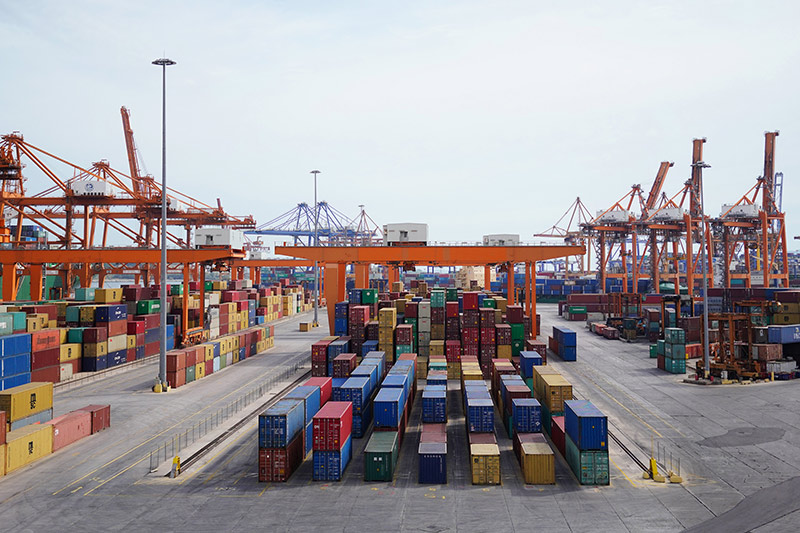
|
初夏一个潮湿的夜晚,一千多人涌入雅典的一处广场,为左翼政治领袖阿莱克斯·齐普拉斯欢呼。齐普拉斯已经到了他总理生涯的末期,在大选中也落后于一位重商派的竞选对手。 他跳上一个临时搭建的演讲台,身后的旗帜上写着“我们有能力”。他对着人群大声说道:“这是一场两个世界之间的战争,是精英与大众的战争!”随后他把话题转到了那些瞄准希腊投资机会的外国公司,在欧洲漫长的金融危机期间,希腊是受伤最深的国家之一。“在连续8年的萧条后,我们成功地回到了增长通道。”齐普拉斯喊着,“电力、健康、教育、水和能源,这些东西是不能卖的!” 把国有的财产保留在希腊人的手中,这样的承诺引来了民众震耳欲聋的欢呼。但是,齐普拉斯并没有提到希腊财富中最宝贵的部分:比雷埃夫斯港。该港口就在雅典的边上——是通往中东和非洲的捷径——2500年来这个港口一直是战略宝地,最早可以追溯到雅典和斯巴达为了地中海的霸权,在附近海域的一场战斗中击败了波斯国王。尽管如此,广场集会的人群明白,正是齐普拉斯的政府多年前卖掉了比雷埃夫斯港,卖给中国。 当中国国家主席习近平在2013年首次提出雄心勃勃的一带一路倡议(简称BRI)时,他脑中想的是商贸,而不是征服。习近平称,中国将在数千英里的距离内,构建一个公路和铁路(“一带”)以及海路(“一路”)的网络,将亚欧和亚非连接起来。这个想法是要重建曾经的丝绸之路——一条东西方的商贸通道,是真正意义上的全球贸易的基石。而中国最终的战略目标是:扩张并稳固一个贸易关系网络,以此来强化未来数十年中国在全球经济和政治格局中的主导地位。 比雷埃夫斯港成为了一带一路开发的展示窗口——这个港口项目不但会改造港口本身,也可能会改造整个希腊经济。这也是中国最大的公司执行一带一路项目并从中获益的一个范例。自2016年以来,该港口的大股东就是中国的中远集团(实际运营始于2009年) 中远进入时,比雷埃夫斯港“只是一个没人认真关注的落后的集装箱装卸区。”说这话的是奥拉夫·默克,他是经合组织(OECD)国际运输论坛的港口和海运专家。“中国看到了一个未被开发的机会。”新的管理层带来了令人炫目的各种变化:据港口管理机构称,今年这个港口的货物吞吐量将是2010年的5倍。比雷埃夫斯港也正在成为地中海最大的集装箱港口,或许在今年就能够超越西班牙的瓦伦西亚港。 与此同时,中远集团自身也获得了迅猛发展,这主要归功于一带一路计划和中国政府的坚实支持。在合并了几家运输公司后,按运输量排,中远已经成为世界第三大的海运公司,年收入达430亿美元,并在环绕欧洲的其他港口也有不少股份。 近几年,中国一直把比雷埃夫斯港宣传成一带一路成就的样板。这种影响力在雅典随处可见:港口提供了更多的就业机会,当地房地产的中文广告,以及要把比雷埃夫斯港再造成一个旅游目的地,让中国的旅客蜂拥而来。 |
On a steamy night earlier this summer, about a thousand people poured into a public square in Athens to cheer on Greece’s leading left-wing politician, Alexis Tsipras. Tsipras was in the waning weeks of his term as Prime Minister—and trailing in a race against a pro-business opponent. Leaping onto a makeshift stage in front of a banner reading “We have the power,” Tsipras shouted over the crowd. “This is a battle between two worlds, the elites against the many!” Then he took aim at foreign companies eyeing investment prospects in Greece, one of the countries hardest hit by Europe’s long financial crisis. “We have managed to get back to growth after eight straight years of recession,” Tsipras said. “Electricity, health, education, water, energy—they are not for sale!” The promise to keep the country’s state-owned assets in Greek hands elicited a deafening roar. And yet Tsipras didn’t mention the most prized Greek asset of all: the port of Piraeus. Situated at the edge of Athens—a short sail from the Middle East and Africa—the port has been a strategic jewel for nearly 2,500 years, ever since the Athenians and Spartans defeated the Persian emperor in a nearby sea battle for Mediterranean supremacy. But as the crowd in the square knew, Tsipras’s own government had sold off Piraeus, years earlier, to a modern-day empire intent on expanding its own power: China. When Chinese President Xi Jinping unveiled the ambitious vision he called the Belt and Road Initiative, or BRI, in 2013, he had commerce, not conquest, in mind. Xi announced that China would build a network of highways and rail lines (the “belt”) and sea routes (the “road”) across thousands of miles, linking Asia to Europe and Africa. The idea was to re-create the old Silk Road—the trade routes between East and West that were the foundations of the world’s first truly global commerce. The ultimate strategic goal: to expand and solidify a web of trading relationships that would cement China’s position as a dominant economic and political power for decades to come. Piraeus has become a showcase display of the BRI in action—a project capable of transforming not just one port but perhaps an entire economy. It’s also an object lesson in the ways China’s biggest companies both execute and benefit from the BRI. The port has been majority-owned since 2016 (and operated since 2009) by China Cosco Shipping. When Cosco stepped in, Piraeus “was a pretty backward container terminal that nobody took seriously,” says Olaf Merk, the ports and shipping expert at the International Transport Forum at the Organization for Economic Cooperation and Development (OECD). “China saw an opportunity that was underdeveloped.” New management has brought dizzying change: This year, the port will handle five times as much cargo volume as it did in 2010, according to the Piraeus Port Authority. And it’s on track to become the biggest container port in the Mediterranean, perhaps as soon as this year, overtaking Valencia in Spain. Cosco, meanwhile, has undergone its own rapid growth, thanks in large part to the BRI and to substantial Chinese government support. After several mergers with other transport companies, Cosco is now the third-biggest shipping company in the world by volume, with $43 billion in revenue—and significant stakes in other ports that ring Europe. In recent years, China has trumpeted Piraeus as a model for what the BRI can achieve. And its impact is visible throughout Athens: in more jobs at the port, in Chinese-language advertisements for local real estate, and in plans to remake Piraeus as a tourist destination for the burgeoning Chinese upper classes. |
****
|
当西方人谈到与中国的竞争,话题常常是先进科技——比如人工智能或者5G互联网。但其实一带一路计划特别强调贸易基础建设的重要性:铁路、公路和港口。而在这个网络中,或许最重要的衔接点是港口。大约90%的国际货物贸易是通过海路完成的。控制了海运航道和港口,就能够在全球经济中掌握极大的影响力。“习近平主席会想,‘我的政治遗产会是什么?’”提出这个设问的是尼古拉斯·维尼科斯,一位第四代的希腊船主,也是总部位于中国的丝绸之路国际商会的副主席。“他决意成为21世纪的马可波罗。” 一旦成功,一带一路将是史上最大的基础设施建设工程。中国的公司早已行动,铺设公路、运作码头、建设铁路线,这些工程覆盖60多个国家比如斯里兰卡、马来西亚和哈萨克斯坦。中国政府的支出和补贴让这些工程不断开工。美国外交关系委员会预计,中国已经在一带一路项目上的投入达2000亿美元,而据摩根士丹利预测,到2027年总投资额将达1.2万亿美元。习近平在2015年说过,一带一路最终将带来“所有沿线国家的真正的大合唱,而不是中国的独角戏。” 在这曲大合唱中,欧洲还只发出了一点微弱的声音:最大的一带一路项目都在亚洲和非洲。但一带一路之外,中国在欧洲的投资也在快速增长。金融危机后欧盟国家的经济停滞不前,沉重的债务负担束缚了政府开支,中国公司于是来填补了真空。 事实上,由于中美贸易关系紧张影响了中国对美的投资,现在中国的直接投资约有四分之一是去欧洲——据律所贝克·麦坚时统计,2018年上半年投资额达220亿美元。国有的中国化工集团在2017年以431亿美元的价格收购了瑞士农业巨头先正达。2016年中国的美的集团出资53亿美元收购了德国机器人厂商库卡,这事让大众汽车耿耿于怀。被特朗普政府认为是国家安全威胁的科技企业华为,在中国之外最大的物流中心就设在匈牙利,那里雇佣了2000名员工。 |
When Westerners think about competition with China, the conversation often involves advanced technology—think artificial intelligence or 5G Internet. But the BRI underscores the importance of the infrastructure of trade itself: railways, roads, harbors. Ports may be the most vital link in that network. Roughly 90% of goods traded internationally makes its way around the world by sea. Control the shipping lanes and ports, and you wield great power over the global economy. “Xi thought, ‘What will my legacy be?’ ” says Nicolas Vernicos, a fourth-generation Greek shipowner and vice chairman of the Silk Road Chamber of International Commerce, a trade organization headquartered in China. “He decided to be the Marco Polo of the 21st century.” If completed, the BRI will be one of history’s biggest infrastructure projects. Already Chinese companies are laying highways, operating ports, and creating railway networks in as many as 60 countries as varied as Sri Lanka, Malaysia, and Kazakhstan. Chinese government spending and subsidies keep the shovels moving. The Council on Foreign Relations estimates that China has spent about $200 billion on BRI projects so far; that investment could reach $1.2 trillion by 2027, according to Morgan Stanley. The result, Xi said in 2015, will bring “a real chorus comprising all countries along the route, not a solo for China.” European voices make up only a small share of the chorus so far: The biggest BRI projects are underway in Asia and Africa. But outside of the BRI, Europe has seen Chinese investment rise quickly. With most EU economies still sluggish in the aftermath of the financial crisis, and heavy debt loads restraining government spending, Chinese companies have filled a void. Indeed, as trade tensions impair China’s ability to invest in the U.S., Europe now accounts for almost a quarter of China’s direct foreign investment—about $22 billion in the first half of 2018, according to law firm Baker McKenzie. State-owned ChemChina bought Swiss agribusiness giant Syngenta in 2017, for $43.1 billion. In 2016, China’s Midea spent $5.3 billion to buy German robotics manufacturer Kuka—which, among other things, keeps Volkswagen’s factories ticking. Technology player Huawei, which the Trump administration has branded as a national-security threat, maintains its largest logistics center outside China in Hungary, where it employs 2,000 people. |
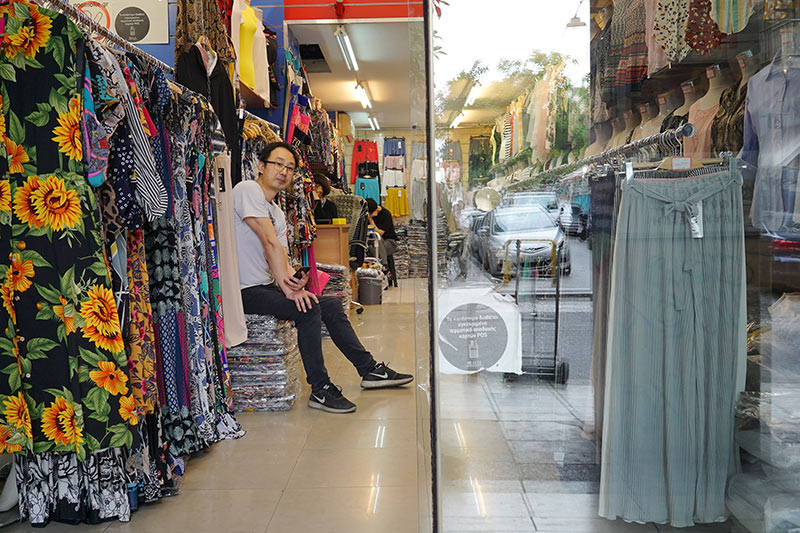
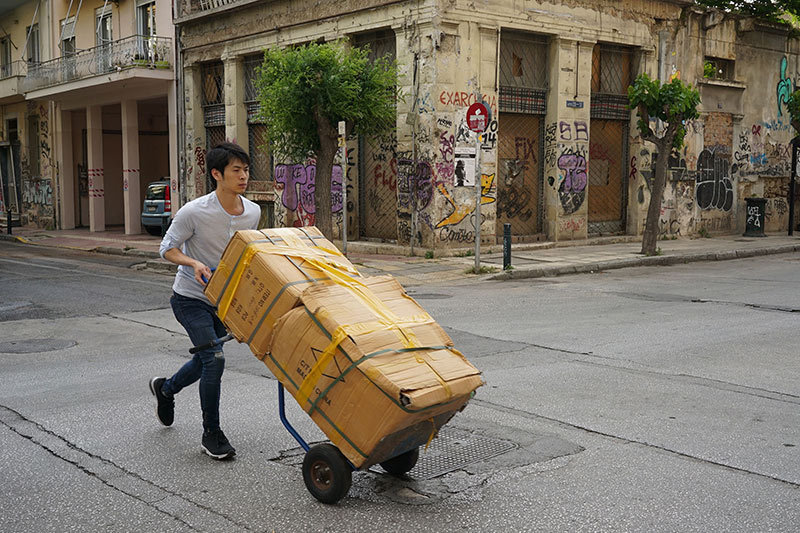
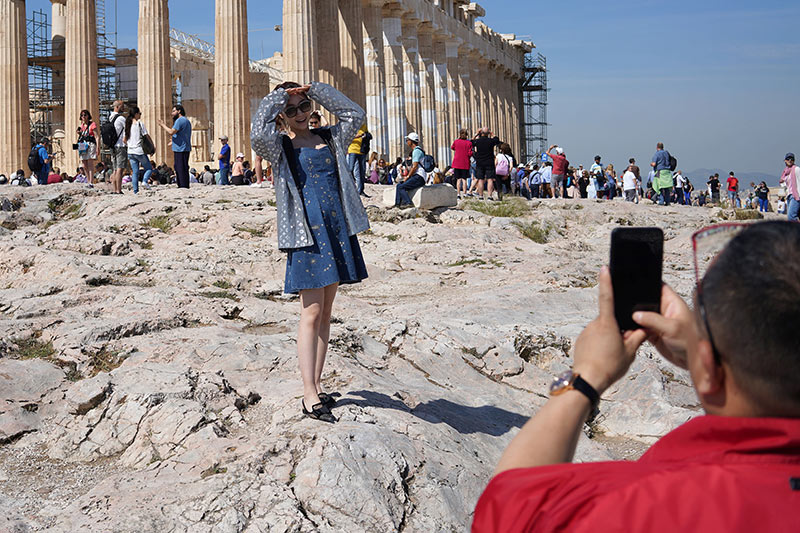
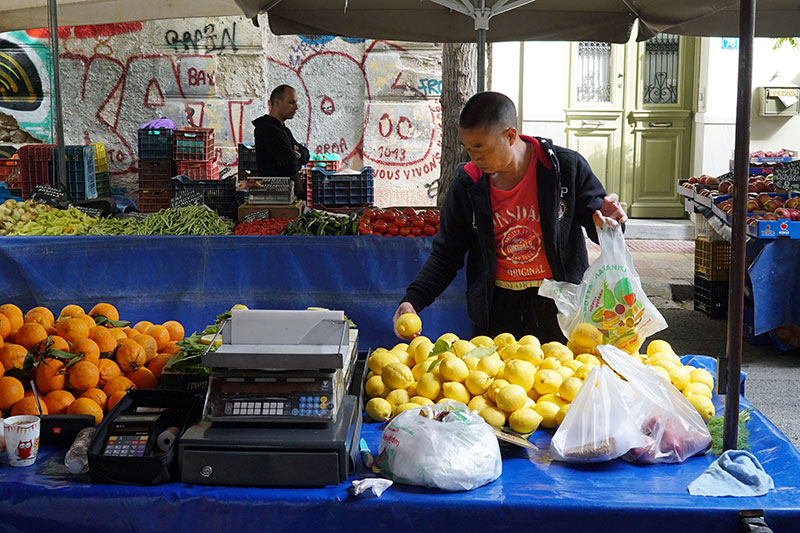
|
前财政部部长、希腊左翼人士扬尼斯·瓦鲁法基斯说:“金钱不喜欢真空。”扬尼斯曾经参与2015年国际货币基金组织和欧盟救助希腊的谈判,他批评欧盟领导人,把希腊的公司搞得很脆弱导致被收购。他说:“欧盟的决策者把投资弄到历史最低水平,让中国公司进来后发现没有其他竞争对手。” 中远就悄悄地成为了这些投资者中最忙碌的一个。在一带一路倡议提出前,中远就已经开始在多个主要港口进行股权收购,环绕欧洲编织一个终端网络。(中远与当地政府签署长期的特许权;比雷埃夫斯港是其唯一拥有控股权的欧洲港口。)中远的布局包括拥有荷兰鹿特丹巨大的Euromax终点港47.5%的股权;100%控股比利时泽布吕赫集装箱港;占股西班牙瓦伦西亚和毕尔巴鄂终点港。在欧洲之巅以色列,中国正在海法和阿什杜德修建港口。 中远的崛起也显示出,国资公司把自己的发展战略纳入政府的宏大计划,将获益甚多。增长和利润几乎可以确保——这样的优势没有一家美国或欧洲的公司可以与之并肩。“中远的运营亏损可以由政府补贴弥补,而信贷的宽松让大额投资成为可能。”经合组织的分析师默克解释道。 中远派驻比雷埃夫斯港的主管傅成秋拒绝了多次的采访请求;中远在欧洲和中国的高管也没有回应采访请求。但在公开场合,公司的高管并不讳言其全球扩张的计划。今年4月,中远的港口部执行总裁张伟说:“扩大规模将仍然是我们这个行业的长期趋势。” |
“Money does not like a vacuum,” says Yanis Varoufakis, Greece’s left-wing former finance minister, who helped negotiate the country’s bailout with the International Monetary Fund and the EU in 2015. Varoufakis blames EU leaders for leaving companies vulnerable to takeovers. “European decision-makers [are] keeping investment at the slowest level in history and leaving the Chinese to come in as the only investors,” he says. Cosco has quietly become one of the busiest of those investors. Even before the BRI was unveiled, it began acquiring stakes in numerous key ports, piecing together a network of terminals around Europe. (The company signs long-term concessions with local governments; Piraeus is the only European port where it owns outright a controlling stake.) Its holdings include 47.5% of the huge Euromax terminal in the Dutch city of Rotterdam; 100% of the container port in Zeebrugge, Belgium; and stakes in terminals in Valencia and Bilbao, Spain. In Israel, on Europe’s edge, it’s building ports in Haifa and Ashdod. Cosco’s rise also shows how state-owned companies benefit when they subsume their strategy to the government’s grand plans. Growth and profitability are virtually assured—an advantage no U.S. or European company can match. “Operational losses of Cosco are compensated by state subsidies, and capital investments are made possible by generous credit lines,” explains Merk, the OECD analyst. Cosco’s Chinese executive in Piraeus, Capt. Fu Cheng Qiu, declined multiple requests for interviews; Cosco officials elsewhere in Europe and China did not respond to interview requests. But publicly, the company’s officials aren’t shy about their plans for global growth. “Scale-up will still be the long-term trend for our industry,” Zhang Wei, executive director of Cosco’s port arm, said in April. |
****
|
如果你从雅典市区驱车5英里进入比雷埃夫斯港,途径一些汽车修理店和小咖啡馆,你不会感觉到你进入的是一个争议焦点区。尽管镇上及周边住着45万人,比雷埃夫斯港给人的感觉是这个郊区也曾经过过好日子。午餐时间,港口咖啡店的塑料桌边坐满了码头工人,抽着香烟讨论着5美元的沙丁鱼餐,这正是他们所经历的十年艰苦岁月的缩影。 一位64岁的留着胡须的强壮男子吉奥格斯·阿莱维索普勒斯说起了他的经历,他17岁就在港口开始工作,那是1972年,当时造船业是希腊的强国产业。他最终成为一名焊工,在干船坞和浮船坞的船只上进行维修工作,数十家小公司在那里干着一些零工。 但到了本世纪初,比雷埃夫斯港的工作量急剧下降,因为许多公司在其他国家寻求更低的维修价格,或者去光顾更现代化的码头。多年的劳工运动也削减了港口的吸引力。阿莱维索普勒斯说,在2005至2014年间,他每年只工作约50天。“我的整个生活都变了,我的人生观也变了。我甚至想过自杀。”他说,“有些日子里,我们只吃点面包。今天该吃点什么这个问题,答案永远都是什么最便宜吃什么。” 多年来,希腊政府似乎满足于将比雷埃夫斯港运营为一个通勤港,渡船送数百万当地人和游客往返于爱琴海的岛屿间。但这里的船坞和货物港的状况,一年不如一年。由于债务缠身,又受制于政治分裂和官僚丛生,政府忽视了港口的升级改造,它本可以让比雷埃夫斯港适应快速发展的大型集装箱船运业。到了2010年,用20尺柜这一衡量集装箱吞吐量的标准方法算,港口的年货物吞吐量跌到只剩88万——是欧洲最大型港口吞吐量的零头。 2008年时中国行动了。中远,全称是中国远洋运输公司,与希腊政府签署了特许证,获得了比雷埃夫斯集装箱装卸港35年的运营权,这份协议价值12亿欧元(约合14亿美元),包括租金和设备升级,以及另外27亿欧元的收入共享。颇有分量的码头工人工会,对于被外资控制的前景表示担忧,他们举行了长达6周的罢工。在中国公司正式入驻那天,他们在比雷埃夫斯港的岸边树起了旗帜,上面写着“中远滚回去!”然而,彼时全球经济衰退正值谷底,希腊没有更多的选择,罢工人群很快就回去工作了。 中远快速地对比雷埃夫斯港的其中一个码头进行了大修,并对吊机进行了重大设备升级。这极大地扩展了比雷埃夫斯港的吞吐能力,几乎一夜之间将该港变成了对集装箱船只富有吸引力的目的港。中远对港口的运营也更有效率。“以前,员工都是公务员。”船主维尼科斯说,“每天工作8小时都不到,大部分时间在钓鱼。” 更重要的是,中远现在把自己公司的巨量集装箱船只导向比雷埃夫斯港。古希腊人就已经明白,比雷埃夫斯港的地理位置让其价值连城。对于从苏伊士运河出发来欧洲大陆的船只,这是最近的主要集装箱港口,也是通往广阔的东南欧地区的门户。“中远到来之前,中国货物需要去汉堡或者英国,然后才能进入比如巴尔干地区,而现在可以缩减10天航程。”《希腊中国时报》的所有人吴海龙告诉我们。他的报纸主要面向在雅典的约1万中国读者。 |
When you drive into Piraeus, five miles from downtown Athens, past auto-body repair shops and small cafés, there is no sense that you’re entering a flash point of controversy. Though some 450,000 people live in the town and its surrounding neighborhoods, Piraeus has the feel of a suburb that has seen better days. At lunchtime, the plastic tables at the café on the pier fill with dockworkers, smoking cigarettes and discussing their lives over $5 plates of sardines—offering a window into the tumultuous decade they have endured. Giorgos Alevizopoulos, a burly man of 64 with a mustache and beard, says he began working in the port at 17, in 1972—when shipbuilding was Greece’s powerhouse industry. He ultimately became a welder, working on vessels under repair or maintenance on dry and floating docks where dozens of small companies operate on piecemeal jobs. But by early this century, work in Piraeus had slowed to a crawl, as companies sought cheaper repairs in other nations or patronized more modern shipyards. Years of labor strife also reduced the port’s appeal. Alevizopoulos says he worked only about 50 days a year between 2005 and 2014. “My entire life changed, and my outlook on life changed. I even contemplated suicide,” he says. “Some days we just ate bread. If there was a question about what we eat that day, the answer was always whatever is cheapest.” For years, the Greek government seemed content to run Piraeus largely as a commuter port for the ferryboats that take millions of locals and tourists to islands in the Aegean Sea. The shipyards and cargo port, meanwhile, deteriorated year by year. Laden with debt and bogged down by political schisms and bureaucracy, the government neglected the upgrades that could have retrofitted Piraeus to serve the rapidly growing large-container shipping industry. By 2010, yearly cargo traffic had fallen to 880,000 TEUs, or twenty-foot equivalent units, the standard measurement for container throughput—a paltry fraction of the capacity of Europe’s biggest ports. In 2008, China made its move. Cosco, then known as the China Ocean Shipping Group, signed a concession with the Greek government to operate Piraeus’s container terminal for 35 years, in a deal worth about 1.2 billion euros ($1.4 billion) in rent and facility upgrades and another 2.7 billion euros in revenue sharing. The powerful dockworker unions, anxious at the prospect of foreign ownership, went on strike for six weeks. They hung a banner on Piraeus’s waterfront on the day the Chinese company took over that read “Cosco go home!” But with the global recession at its nadir, and few other options, the strikers soon returned to work. Cosco quickly overhauled one of Piraeus’s piers and implemented a major upgrade of its loading cranes. That vastly expanded Piraeus’s capacity, turning the port almost overnight into an attractive destination for container vessels. Cosco also ran the port more efficiently. “Before, the employees were public servants,” says Vernicos, the shipowner. “They were working less than eight hours a day and fishing most of the time.” Most important, Cosco now directs more of its own huge container-vessel traffic to Piraeus. As the ancient Greeks understood, Piraeus’s location makes it potentially invaluable. It is the closest major container terminal on the European mainland for ships emerging from the Suez Canal—and a gateway to a huge swath of southeastern Europe. “Before Cosco arrived, Chinese products had to go to Hamburg or Britain, and then they would go perhaps to the Balkans,” says Wu Hailong, owner of the Greece China Times, a newspaper catering to the 10,000 or so Chinese residents of Athens. “Now it saves about 10 days on the route.” |
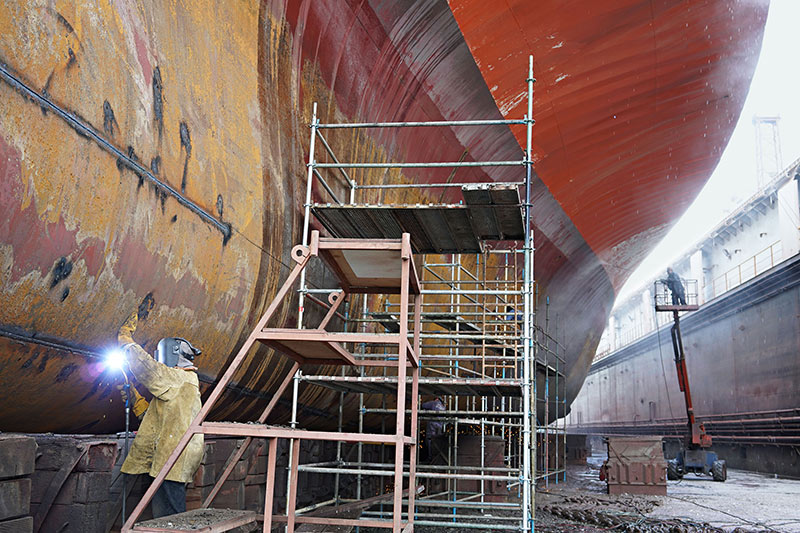
|
即便比雷埃夫斯港运作得不错,希腊仍然在债主设置的严峻紧缩条件下艰难前行。债主们要求希腊政府大幅缩减公共开支——导致成百数千早已深受紧缩之苦的希腊人走上街头抗议。阿莱克斯·齐普拉斯和他的激进左翼联盟赢得了2015年的大选,在竞选中他们承诺绝不售卖某些公共资产。但最终,为了符合国际货币基金组织和欧盟的救助条件,他们还是不得不卖了一些家当。看看吧:希腊把铁路线卖给了意大利国有铁路公司,售价仅仅是微不足道的4300万欧元,比有些体育明星一年赚的都少。天然气的控股权卖给了一个私有集团;另一家国有公司中国电网,收购了希腊国家公用事业的部分股权。曾经主管希腊议会预算办公室的经济学家帕纳吉奥蒂斯·里亚格瓦斯说:“希腊有几个选择,但希腊没有选择破产。” 2016年希腊同意将比雷埃夫斯港的51%的股权卖给中远,包括其集装箱装卸港100%的股权,协议价格是3.685亿欧元,另加7.6亿欧元的升级改造费和收入共享。比雷埃夫斯港实际上成为了中国永久拥有的港口了。2018年该港口的吞吐量是490万个20尺柜,成为了欧洲第六大的货物港。 焊工阿莱维索普勒斯说,从那以后他的生活急速好转。他说去年他赚了差不多2万欧元——是政府卖出港口前他收入的4倍。即便如此,希腊经济的苦难历程还是留下了一些疤痕。“心理上,我们还没有复原。”他说,“像其他人一样,我们还是有担忧。” |
Even as Piraeus got healthier, Greece labored under heavy austerity conditions imposed by its creditors. Its lenders demanded that the government make deep cuts to public spending—prompting hundreds of thousands of already-suffering Greeks to flood the streets in protest. Alexis Tsipras and Syriza won elections in 2015, campaigning on promises never to sell certain public assets. In the end, however, Greece had to do just that as a condition of a bailout by the EU and the IMF. Consider this: It sold its rail lines to Italy’s state-owned railway company for a tiny 43 million euros, less than some pro athletes earn in a year. Its natural-gas holdings were sold off to a private group; China State Grid, another state-owned company, bought a stake in Greece’s national utility. “Greece had choices, and it did not choose bankruptcy,” says Panagiotis Liargovas, an economist who headed the Greek Parliament’s budget office at the time. In 2016, Greece agreed to sell 51% of Piraeus to Cosco, including 100% of its container terminal, for a bargain price of 368.5 million euros, plus 760 million euros in upgrades and revenue sharing. Piraeus became Chinese-owned, effectively in perpetuity. And in 2018, it processed 4.9 million TEUs, making it Europe’s sixth-largest cargo port. Alevizopoulos, the welder, says his life has drastically changed for the better since then. He says he made nearly 20,000 euros last year—about four times as much as his earnings before the government sold the port. Even so, Greece’s economic ordeal has left its mark. “Psychologically, we have not recovered,” he says. “Like the rest of the people, we are still afraid.” |
****
|
到了2018年8月,希腊终于摆脱了长达8年的紧缩计划。尽管2017年希腊经济获得了增长,但在2008至2016年间希腊的GDP令人瞠目地缩减了45%——这是和平时期对一个国家最大的经济打击。希腊的项目融资要让投资人有信心,还需要更多的时间,希腊银行行长雅尼斯·斯托纳拉斯认为,“所以我们需要股权投资。”这些资金的进入,不仅是为了提升经济,也是为了在实质上重振希腊,行长解释说。金融危机期间成千上万的受过教育的年青人离开了希腊,留下来的也不愿意组建家庭。“只有提供好的工作岗位,年轻夫妇才会愿意生小孩。”斯托纳拉斯说。 中远说它正在创造这些就业机会。许多希腊人担忧中国控制了港口,意味着很多中国工人会进来取代希腊员工,可实际上港口的中国员工数量很少,都是一些经理层的人,也很少在船只和集装箱堆场上见到他们。中远的董事长许立荣最近对中国媒体说,中远为希腊创造了3100个工作岗位,为希腊经济提供了3.37亿美元的产值——对于GDP约为2000亿美元的希腊来说,这个数目是有价值的。去年该港口的收入约为1.51亿美元,比2017年上涨19.2%,中远称其目标是将比雷埃夫斯港的吞吐量再翻一番。 中资拥护者们,还看到了中国资金在经济低迷时支撑了其他行业。希腊最大的房地产开发商之一V2总裁瓦吉利斯·克特尼亚蒂斯称,过去10年他在雅典的海边高档物业,只有5个希腊买家。克特尼亚蒂斯协助说服了希腊政府在2013年启动了一项“黄金签证”项目,外国人只要在希腊投资25万欧元的房产,就能获得希腊居民身份。 克特尼亚蒂斯估算,从那时起中国买家在雅典抢购了超过4000套住宅和公寓,而仅经他手卖出的就有450套,买家一般是用作第二套房或者短期租赁。如今V2的中文广告遍布雅典机场的取行李区,买房就能快速获取欧盟居民资格——这对生意人来说是极大的优势。“中国人拯救了希腊房地产。”克特尼亚蒂斯说,而他也在四个中国城市设立了办公室。 仅凭中国资金,就能重塑比雷埃夫斯的房地产市场。某个下午,比雷埃夫斯港管理局的发言人奈卡塔里奥斯·德门诺普洛斯带着记者绕了港口一圈,他指向一片巨大的废弃大麦筒仓地,说中远想要把它变成其计划中的五家高端酒店之一;中远还计划建立一个奢侈品商场。中远的想法是要投资约6亿欧元,把这个沉睡中的小镇变成一个旅游港口,服务于把比雷埃夫斯作为一站的巡洋船只(包括中国船只)。目前在这个小镇无事可做,游客如果在这下船,只会蜂拥而去6.5英里外的雅典卫城。“中国人对古希腊文化是有敬意的。”德门诺普洛斯说,“但在成千上万的中国富有人群中,来我们这儿的还是少数。” |
In August 2018, Greece finally exited the eight-year austerity program imposed by its creditors. Although the economy returned to growth in 2017, Greece’s GDP had shrunk an astonishing 45% between 2008 and 2016—the largest depression ever to strike a country in peacetime. It will take years more for outside lenders to feel secure about financing projects in Greece, says Yannis Stournaras, governor of the Bank of Greece, “so we hope for equity investment.” Such an influx is needed not just to boost the economy but also to literally rejuvenate Greece, the governor explains. Thousands of educated young people fled during the crash, and those who stayed have been reluctant to start families. “Only by producing good jobs will young couples produce more children,” Stournaras says. Cosco says it is generating such jobs. While many Greeks worried that Chinese control would mean that imported workers would displace Athenians, only a handful of the port’s staff is Chinese, and those are managers, rarely seen amid the ships and stacks of containers. Cosco’s chairman, Xu Lirong, recently told Chinese media that the company has created 3,100 jobs for Greeks and added about $337 million a year to the Greek economy—a meaningful sum in a country with GDP of about $200 billion. The port’s revenues were about $151 million last year, up 19.2% from 2017, and Cosco says it is aiming to more than double the container volume Piraeus handles. Boosters see Chinese money also bolstering other sectors that suffered during the dark years. Vaggelis Kteniadis, president of V2, one of Greece’s biggest real estate development companies, says he has had only five Greek buyers for his properties in Athens’s upscale seaside suburbs during the past 10 years. Kteni¬adis helped persuade Greece’s government to launch a “golden visa” program in 2013, offering foreigners resident status in exchange for investing 250,000 euros in Greek property. Kteniadis estimates that Chinese buyers since then have snapped up more than 4,000 houses and apartments in Athens, about 450 from him alone, bought as second homes or short-term rental properties. Today, V2’s advertisements, in Chinese, are plastered across the baggage-claim area in Athens’s airport, offering home ownership as a rapid path to EU residency—an invaluable advantage for businesspeople. “The Chinese have saved Greek real estate,” says Kteniadis, who now has offices in four Chinese cities. Chinese money could reshape the real estate of Piraeus itself. Guiding a reporter around the port one afternoon, Nektarios Demenopoulos, spokesman for the Piraeus Port Authority, points out a large abandoned wheat silo, which Cosco wants to convert into one of five high-end hotels; the company also envisions building a luxury shopping mall. The idea is to invest some 600 million euros to transform the sleepy town into a tourist hub, catering to cruise ships (some Chinese-owned) for which Piraeus is a stop. There is little to do in town currently, and passengers, if they disembark at all, make a beeline for the Acropolis 6.5 miles away. “The Chinese already have respect for ancient Greek culture,” Demenopoulos says. “But we still have a very small number of Chinese tourists compared to the thousands of Chinese millionaires.” |
****
|
2017年,中国在欧洲更是急剧地扩大影响力。今年3月,习近平主席到达罗马,对意大利进行国事访问,意大利的总统卫队马背列队欢迎他,如同欢迎教皇。之后,男高音安德烈·波切利在正式宴会上为他高歌一曲。意大利的公司与中国签署了价值28亿美元的协议,而且意大利原则上同意加入一带一路计划,成为西方主要经济体G7集团中首个加入的国家。在意大利,如同在比雷埃夫斯,中国的海洋雄心发挥了作用:意大利有四个港口在寻求中国投资,包括的里雅斯特,其铁路直通比利时和德国,代表着欧洲最有价值的贸易线路。 在希腊,局势发展也对中远有利。齐普拉斯的激进左翼联盟在7月初的大选中败北。饱受多年增税和勒紧腰带之苦的选民,选择了新民主党。新民主党党魁基里亚科斯·米佐塔基斯成为了新任总理,他现年51岁,哈佛毕业,曾经是风险投资家,他承诺为希腊吸引大投资者。大选前几周在雅典举行的一带一路会议上,新民主党的副主席阿多尼斯·吉奥吉亚蒂斯说,新民主党“欢迎中国公司来希腊投资和发展”。 走在比雷埃夫斯的港口,码头上堆积如山的集装箱让人觉得这个国家的繁荣可期。在十年的衰退和苦日子后,比雷埃夫斯的码头工人感知到了收入增长的机会。当地码头工人工会的秘书长吉奥格斯·高格斯说:“我们不想总是这么挣扎着过日子,我们需要平静的生活。眼下,对和平的渴望超越了民族自尊。”(财富中文网) 本文另一版本登载于《财富》杂志2019年8月刊,标题为《码头上的集装箱》。 译者:Min |
This year, the stakes rose dramatically. In March, when President Xi landed in Rome for a state visit, Italy’s presidential guards lined up on horseback to greet him, as they do for the Pope. Later, tenor Andrea Bocelli serenaded Xi at a formal dinner. Italian companies signed deals with China worth $2.8 billion, and Italy agreed, in principle, to join the BRI, becoming the first member of the G7 group of major Western economies to sign on. Here, as in Piraeus, China’s maritime ambitions play a role: Italy is courting Chinese investment in four of its ports, including Trieste, a city whose direct-rail connections to Belgium and Germany represent some of Europe’s most valuable trade routes. It was Xi’s splashy Italy visit that jolted EU officials into issuing their warning about China as a “systemic rival.” The EU plans to more rigorously monitor investments by state-owned companies like Cosco. It has begun rolling out guidelines to prevent countries from ceding control of strategic infrastructure or sensitive technology—an attempt to mirror the U.S. Treasury’s Committee on Foreign Investment in the U.S., or CFIUS, which examines deals involving American companies. Closer examination of security threats and unfair competition “could severely affect China’s investment footprint in Europe,” concludes a recent report by the Rhodium Group and the Mercator Institute for China Studies in Berlin. Indeed, data on Chinese investment in Europe shows that its pace is already slowing. On a walk through Piraeus, worries about China’s influence seem dwarfed by the towers of containers on the dockside—bulky symbols of the port’s prosperity. Giorgos Gogos, general secretary of the local Dockworkers Union, says the era of strikes and protests is over—for now. That harmony could end if Cosco threatens union workers’ incomes. Still, after a decade of recession and pain, Piraeus’s dockworkers sense the chance for growth—or, at least, stability. “We are tired of struggling all the time,” Gogos says. “We need a period of peace.” For now, that desire for peace seems to outweigh national pride. A version of this article appears in the August 2019 issue of Fortune with the headline “Boxed in at the Docks.” |













